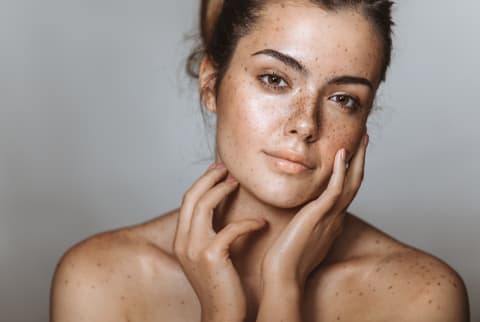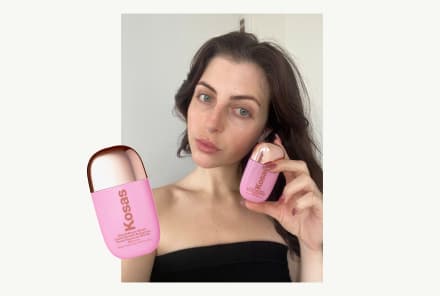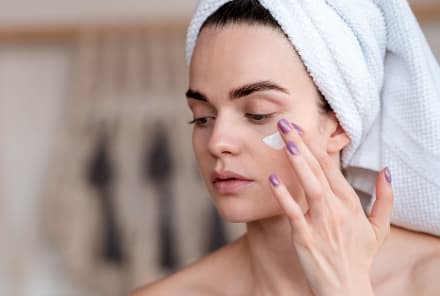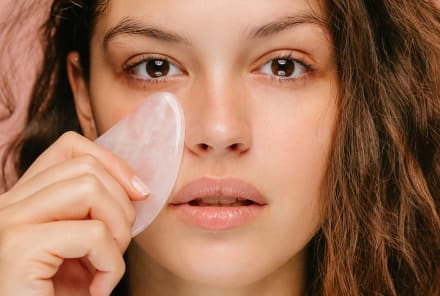Advertisement
Why This Dermatologist Wants You To Take Your Barrier Function More Seriously


Here's a friendly reminder: Your skin is an organ. And like any organ, it has very specific functions in order to keep you at your healthiest. Its primary role is something called the skin barrier function, and despite the simplicity of the name (your skin is a barrier—checks out!), it actually gets quite complicated when you explore the mechanisms of the barrier.
But understanding the barrier as a whole is vital to understanding why it's so important to treat it right—and the various ways in which we could be currently damaging it. In this episode of Clean Beauty School, we spoke with mindbodygreen Collective member and board-certified dermatologist Whitney Bowe, M.D., about the very vital reason we need to get serious about treating our skin like the organ it is.
Why compromising your barrier now affects you in the future.
When your skin is damaged, it cannot field stressors, allergens, and pathogens: "When your barrier is compromised, it's not able to be selective and smart. So things start getting in that really shouldn't be getting in, and then it can manifest itself in a few different ways depending on your genetic predispositions—you know acne, rosacea, or eczema," says Bowe.
People have long known how important it is to tend to your skin, of course, but only recently have we come to understand just how vital its barrier function is and how easily it can be disrupted. "The skin barrier, we're learning in the last several years how important it is," she says. "There's really beautiful science that's showing how important it is for all of these different things—that look very different when they appear on the skin—but maintaining your barrier is critical to all of them."
But here's the problem: Many people aren't necessarily predisposed to dramatic skin conditions. So when their skin is compromised, they may not have signs this is happening on and under the skin. But that doesn't mean the damage isn't occurring—nor will you see the effects later: "It can show up as accelerated aging," Bowe tells us.
But it's not just aesthetic concerns later on you need to look out for: Damaged barriers now lead to skin conditions later.
"In traditional medicine, doctors are there to put out fires, but if we take a step back and educate people on how to care for their skin in a prophylactic way, you can not only help with accelerated aging—but perhaps stop people from developing certain skin conditions later," says Bowe. "Think about that version of you 10 years from now—what can we do today to prevent skin conditions from forming?"
And yes, even mild damage can contribute to this—especially if it's chronic. "Even if we're not seeing it overtly—it's still happening with chronic low-grade inflammation. Even if the barrier is slightly compromised, the patient may go about their day, but that disruption causes a cascade of stressors and inflammatory cytokines that are creating this slow burn of damage below the surface," she says.
What are the top things you can do to secure a strong barrier?
Some of the best tips I learned from our conversation—but plenty more in the episode itself.
Protect your microbiome.
Not only does a flourishing skin microbiome help crowd out pathogens, but it literally instructs your immune function to perform optimally. "[Part of our skin barrier function is the] skin-associated lymphoid tissue immune system. There's this constant crosstalk between our skin microbes and our immune cells, where the microbes are actually telling our immune cells when it's important to react and when it's not."
This conversation is vital because one of the organ's most important duties is to protect your body—and she goes on to explain that in animal studies they've found that when specimens don't have a proper microbiome, the immune system can't function properly either.
Bowe recommends looking for biotic-friendly products that don't strip the skin with harsh sulfates or preservatives and also nourish the biome with pre- and postbiotics.
However, think critically about biome products.
Yes, you should look for biome-friendly products, but Bowe also warns us to think critically about the ones we are using. "These are everywhere," she says. "And barrier support as a 'trend' isn't going anywhere, but some of these products aren't being formulated in ways that are actually going to help your microbiome."
She goes on to explain that even if a product has some biotic ingredient, the other actives in the formula may actually be backtracking on its work. For example, preservative systems may render a probiotic ineffective. Or washes may be made with surfactants that are too drying and stripping, therefore damaging the barrier or messing with the pH. Or creams may contain natural ingredients that are common allergens, irritating the skin further.
She recommends looking for products that have research backing their claims, vetted by dermatologists, and avoids common allergens or are hypoallergenic.
Take recovery days when using potent activities.
We often talk about taking recovery days for muscles; well, your skin needs them too. Potent actives—think glycolic acid, retinol, salicylic acid, even certain types of vitamin C—can do great things for our skin. However, they can also really disrupt our microbiomes and barriers.
This is why you have to use them in moderation.
"Say one night you have glycolic acid serum, the next you use retinol, the next two nights skip activities! Those nights only use barrier-supporting ingredients, hydrating ingredients, and give your skin a break," says Bowe. "Even the most accomplished athletes, they know if they do the same workout every day not only do they hit a plateau with their performance, but they make themselves more prone to injury! Our skin is the same."
Watch Next
Enjoy some of our favorite clips from classes
Enjoy some of our favorite clips from classes
What Is Meditation?
Mindfulness/Spirituality | Light Watkins
Box Breathing
Mindfulness/Spirituality | Gwen Dittmar
What Breathwork Can Address
Mindfulness/Spirituality | Gwen Dittmar
The 8 Limbs of Yoga - What is Asana?
Yoga | Caley Alyssa
Two Standing Postures to Open Up Tight Hips
Yoga | Caley Alyssa
How Plants Can Optimize Athletic Performance
Nutrition | Rich Roll
What to Eat Before a Workout
Nutrition | Rich Roll
How Ayurveda Helps Us Navigate Modern Life
Nutrition | Sahara Rose
Messages About Love & Relationships
Love & Relationships | Esther Perel
Love Languages
Love & Relationships | Esther Perel

















